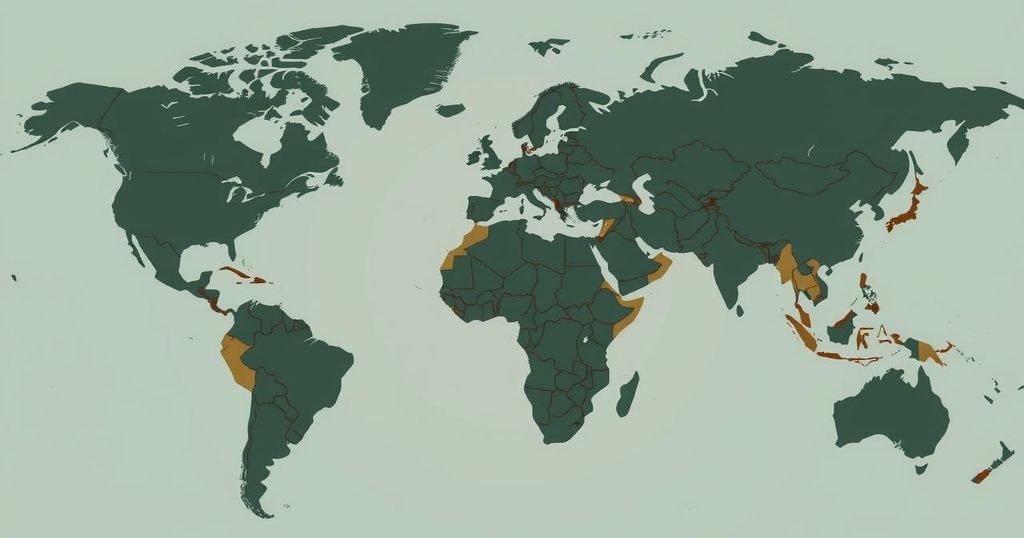The Trump administration is preparing to impose new U.S. entry restrictions on countries including Afghanistan, Pakistan, and several others. This follows an Executive Order aimed at evaluating nations for security vetting inadequacies. Advocacy groups have warned of dire consequences for refugees, while critics argue that existing vetting is already stringent. An announcement detailing the affected countries is anticipated.
The Trump administration is reportedly poised to implement new U.S. entry restrictions on various countries, potentially affecting travel and visa access for individuals from Afghanistan, Pakistan, Iran, Libya, Somalia, Sudan, Syria, Yemen, Chad, North Korea, and Venezuela. This follows an Executive Order signed on January 20, which directed federal bodies to evaluate nations with inadequate security vetting procedures. Officials are considering either partial or complete suspensions of admissions from these nations, with a formal announcement expected shortly.
During his initial tenure, President Trump enacted a series of travel bans beginning in 2017, with the first targeting predominantly Muslim nations. This policy faced considerable backlash, with critics labeling it a “Muslim Ban” due to its focus on Muslim-majority countries. Notwithstanding the challenges, the U.S. Supreme Court upheld the final iteration of the ban in 2018, asserting it fell within the President’s jurisdiction to enforce national security.
While the definitive list of restricted countries remains unconfirmed, Afghanistan and Pakistan are reportedly among those under consideration for restrictions. Advocacy groups, namely the International Refugee Admissions Project (IRAP), have cautioned against potential repercussions for Afghan refugees, particularly those holding Special Immigrant Visas (SIV), who are escaping Taliban oppression.
Additionally, Pakistan is under scrutiny for security concerns and potential inadequacies in its vetting processes. Inclusion on the list could adversely impact numerous Pakistani nationals aspiring to obtain U.S. visas.
Opposition to these prospective travel bans has been vocal, particularly from civil rights organizations like the American Civil Liberties Union (ACLU), which have denounced the proposed measures as unwarranted. Critics emphasize that the State Department and the Department of Homeland Security (DHS) already implement some of the world’s most stringent vetting protocols, thus rendering further restrictions excessive.
As per the Executive Order’s stipulations, both the State Department and DHS have a 60-day window to finalize their list of nations that may face travel barriers. With the deadline approaching, an official statement is anticipated in the near future. For ongoing updates, individuals are encouraged to consult the official websites of the U.S. Department of State and the DHS.
In conclusion, the Trump administration’s potential introduction of new U.S. entry restrictions raises significant concerns regarding human rights and national security. The impending decisions regarding countries such as Afghanistan and Pakistan may affect many individuals, particularly those fleeing persecution. Advocacy groups and civil rights organizations have expressed strong opposition, arguing against the necessity of these restrictions in light of existing vetting processes. An official announcement regarding these travel restrictions is expected soon, and stakeholders await clarity on the administration’s actions.
Original Source: www.travelandtourworld.com




